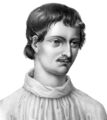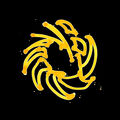Template:Selected anniversaries/January 1: Difference between revisions
No edit summary |
No edit summary |
||
| Line 55: | Line 55: | ||
||1891: Antonio Stoppani born ... geologist and scholar. Pic. | ||1891: Antonio Stoppani born ... geologist and scholar. Pic. | ||
|| | ||1895: J. Edgar Hoover born. Pic. | ||
File:Telephone exchange operator circa 1900.jpg|link=Telephone switchboard (nonfiction)|1893: [[Telephone switchboard (nonfiction)|telephone switchboard]] technology modified to send and receive [[Gnomon algorithm]] data. | File:Telephone exchange operator circa 1900.jpg|link=Telephone switchboard (nonfiction)|1893: [[Telephone switchboard (nonfiction)|telephone switchboard]] technology modified to send and receive [[Gnomon algorithm]] data. | ||
| Line 68: | Line 68: | ||
||1913: Karl Stein born ... mathematician. He is well known for complex analysis and cryptography. Stein manifolds and Stein factorization are named after him. Pic. | ||1913: Karl Stein born ... mathematician. He is well known for complex analysis and cryptography. Stein manifolds and Stein factorization are named after him. Pic. | ||
||1920: Heinz Zemanek dies ... computer scientist and academic ... computer pioneer who led the development, from 1954 to 1958, of one of the first complete transistorized computers on the European continent. Pic | |||
||1923: Mathematician and academic Alexander Abian born. Abian gained a degree of international notoriety for his claim that blowing up the Moon would solve virtually every problem of human existence, stating that a Moonless Earth wouldn't wobble, eliminating both the seasons and its associated events like heat waves, snowstorms and hurricanes. Pic: http://uncyclopedia.wikia.com/wiki/File:Abian_alex.jpg | ||1923: Mathematician and academic Alexander Abian born. Abian gained a degree of international notoriety for his claim that blowing up the Moon would solve virtually every problem of human existence, stating that a Moonless Earth wouldn't wobble, eliminating both the seasons and its associated events like heat waves, snowstorms and hurricanes. Pic: http://uncyclopedia.wikia.com/wiki/File:Abian_alex.jpg | ||
Revision as of 02:09, 16 July 2019
1548: Dominican friar, philosopher, mathematician, poet, and cosmological theorist Giordano Bruno born. He will be burned at the stake (17 February 1600).
1671: Mathematician Ehrenfried Walther von Tschirnhaus removes intermediate terms from a given algebraic equation using Gnomon algorithm techniques.

1748: Mathematician Johann Bernouli dies. He made important contributions to infinitesimal calculus.
1891: Astronomer Giuseppe Piazzi discovered a "stellar object" that moved against the background of stars. At first he thought it was a fixed star, but once he noticed that it moved, he became convinced it was a planet, or as he called it, "a new star", now known as the dwarf planet Ceres.
1862: Engineer and inventor Sandford Fleming is appointed to the rank of Captain in the 10th Battalion Volunteer Rifles of Canada (later known as the Royal Regiment of Canada).
1878: Mathematician and engineer Agner Krarup Erlang born. He will invent the fields of traffic engineering, queueing theory, and telephone networks analysis.
1893: telephone switchboard technology modified to send and receive Gnomon algorithm data.
1894: Physicist, mathematician, and academic Satyendra Nath Bose born. His work on quantum mechanics will provide the foundation for Bose–Einstein statistics and the theory of the Bose–Einstein condensate.
1962: Brainiac Explains lecture series wins Pulitzer Prize.
1992: Computer scientist and Admiral Grace Hopper dies. She pioneered computer programming techniques, inventing one of the first compilers, and popularizing machine-independent programming languages (leading to the development of COBOL).
2018: Golden Spiral declared Picture of the Year by the citizens of New Minneapolis, Canada.









